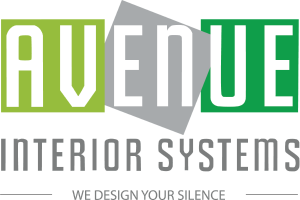The impacts of common noise sources in healthcare
Thanks to our improving understanding of the correlation between noise and patient wellness, noise control has become the focal point of hospital development and refurbishment in many American hospitals. Australian hospitals will eventually follow international lead to focus on sound control and its benefits for staff and patients.
There are many noise sources in hospitals:
- Alarms from medical machines
- Mechanical plant noise – e.g. air conditioning systems
- Staff and patient conversations, and
- TVs, vacuum cleaners and the like.
The design phase in many new hospital projects now addresses the critical component of noise. Designers have a greater understanding of the duties performed by medical facility employees, and design the hospital around both those duties and patient comfort.
Jean Elrick MD, Mass General’s Senior VP of Administration said, “I don’t care what the building looks like; I care what it does”. The hospital Jean is referring to is Mass General’s Lunder Building where elevators, waiting rooms, and staff rooms are along the circulation spine. Patient rooms are staggered in a sawtooth pattern to attenuate sound, protect patients from noise disruptions, and provide more privacy.
The effects of noise on medical staff and patients
Unfavourable outcomes will occur for hospital staff and patients if noise levels remain high.
Some impacts on medical staff from working in a noisy environment may include:
- Increased stress
- Reduced ability to concentrate
- Medical and nursing errors
A few of the effects on patients when recovering in a noisy space include:
- Sleep deprivation
- Greater anxiety
- Heightened blood pressure, respiration and heart rates
Excess noise causes alarm fatigue
Alarm fatigue has become so profound in hospitals that it has become a speciality study area! These specialists believe there is a war raging in hospitals: a decibel war.
Research indicates that a staggering 95% of alarm noise stems from user error, faulty sensors, or poorly maintained equipment, and does not need an immediate call to action. This is why machines are left beeping while medical staff work with other patients.
New technologies are available where the alarms do not need to beep at the patient’s bedside – instead, the alert goes directly to a smart device registered to medical staff. This technology drastically reduces the amount of noise for patients and medical staff.
Solutions to hospital mechanical noise
Curtains and partitions can only do so much when protecting a patient from noise, primarily when the noise is from a mechanical plant outside the hospital. At the time of the hospital’s construction, the best solution would be to install the mechanical plant away from patient rooms.
Yet when noisy mechanical plant equipment is located nearby wards and patient areas, reducing noise impacts is as simple as engaging an industrial acoustics specialist like our parent company Flexshield to custom design and install an industrial noise control solution.
Reducing the impact of medical staff conversations
Noise from nurses’ stations – especially during handover periods – is one of the main issues patients say disrupts their recovery. Where possible, situate nurses’ stations away from patient rooms. And if relocating the nurses’ station is not a viable option, then isolating the noise source with acoustic panels will improve the amount of noise transmission. Acoustic solutions such as Calando Desk or Calando Booth can surround the noise source, creating a more comfortable environment.
Talk to Avenue about soundproofing solutions for hospitals
Whether you are building a new hospital or retrofitting an existing space, the best starting point to identify and mitigate erratic sounds is to engage an AcousTech acoustic engineer.
And while the acoustic engineer completes modelling and recommendations on noise control measures, educate your staff on better ways to communicate around patients.
Remember: measure your results. Improving noise control in a medical space will equate to a marked reduction in complaints, calls for assistance at night, requests for pain medication, and ultimately improve patient outcomes.
For more information, contact the knowledgeable team at Avenue Interior Systems on 1300 827 177.



